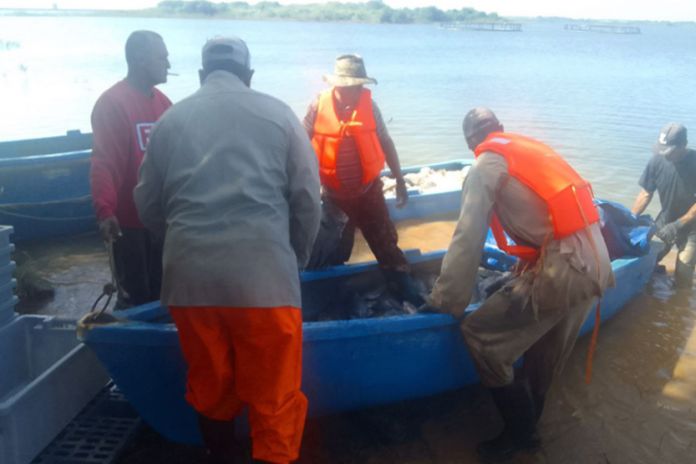HAVANA, Cuba, (ACN) – Cuban Food Industry minister Alberto Lopez considered viable an ongoing intensive fish cultivation project in the locality of Los Palacios, western Pinar del Rio province.
The project, developing the fish species known as Tilapias, counts on the collaboration of Vietnam’s Ria 1 research institute; the Asian nation produces some 9 million tons of Tilapias annually.
The results observed during the harvesting season these days prove that Cuba has conditions to develop this aquiculture project to produce fish meat, because the island counts on appropriate climate, water and infrastructure, the minister told the Cuban News Agency.
According to deputy minister of the food industry Miladys Naranjo said the ongoing harvesting is the third of its kind since the project was launched back in 2011 by the Cuban Fishing Conglomerate and the Vietnamese experts. The fish product is taken to the processing industry to provide food for the people and it’s also an export commodity.
The fish meat output for this year is expected to reach ten tons, while the production schedules for the next two years are around 40 or more tons, the official said.
Cuba has some 70 thousand hectares in reservoirs dedicated to aquiculture in an effort to develop and guarantee fish meat for the people





